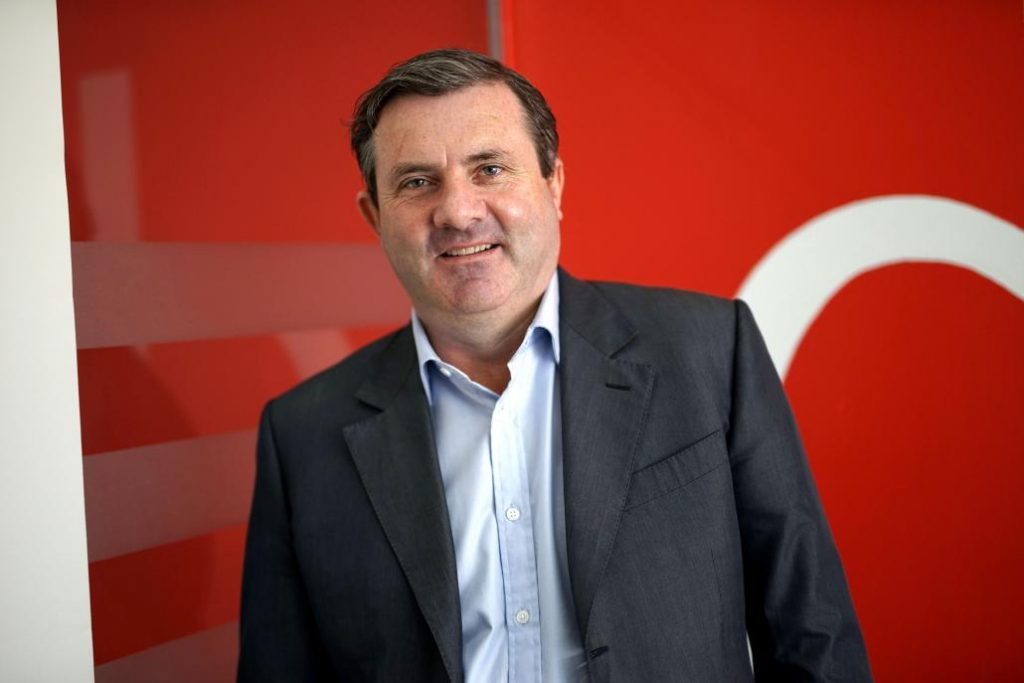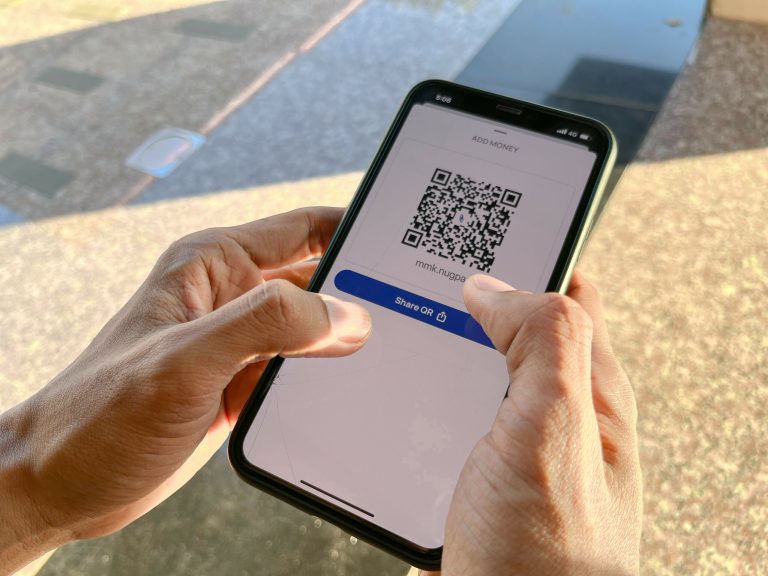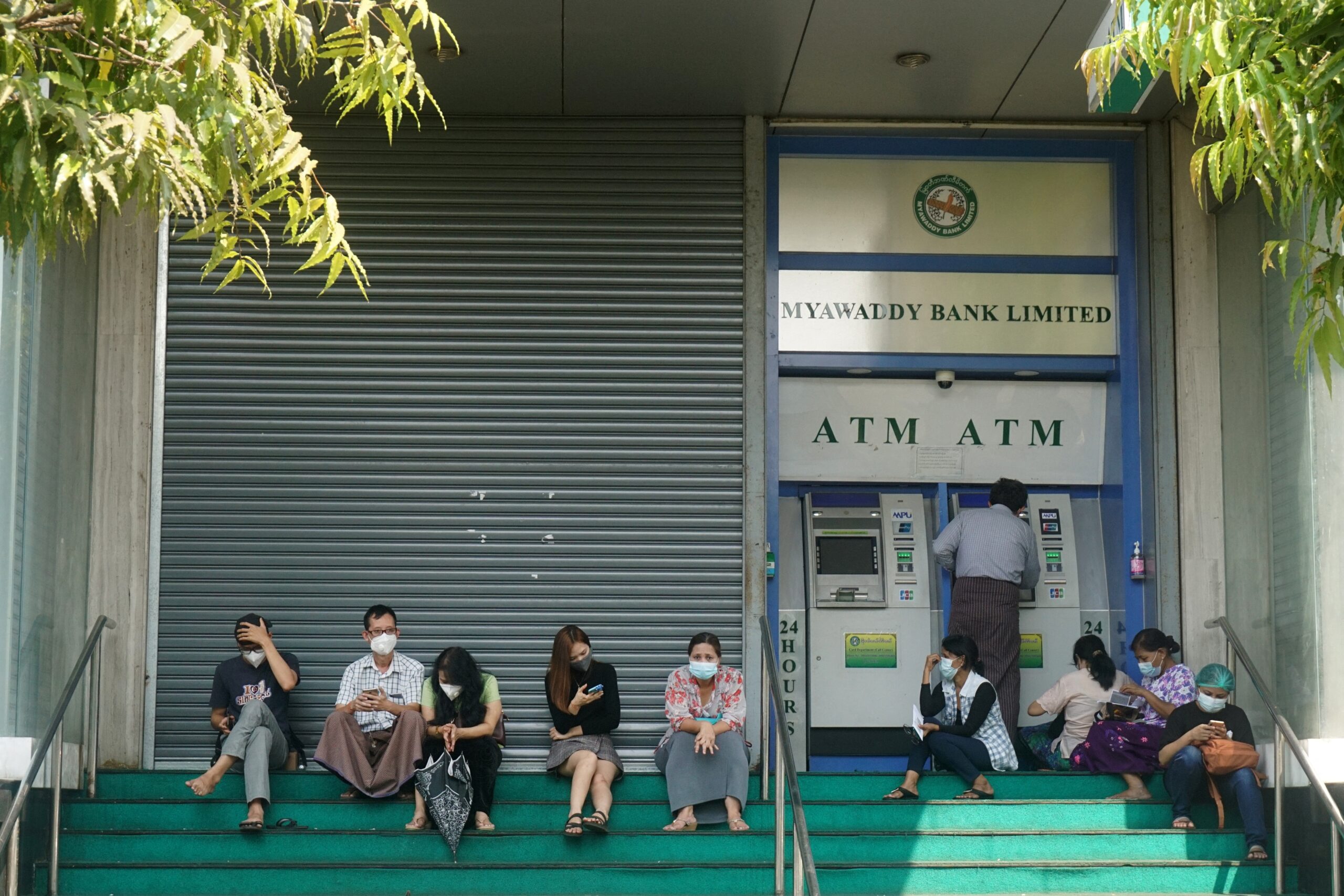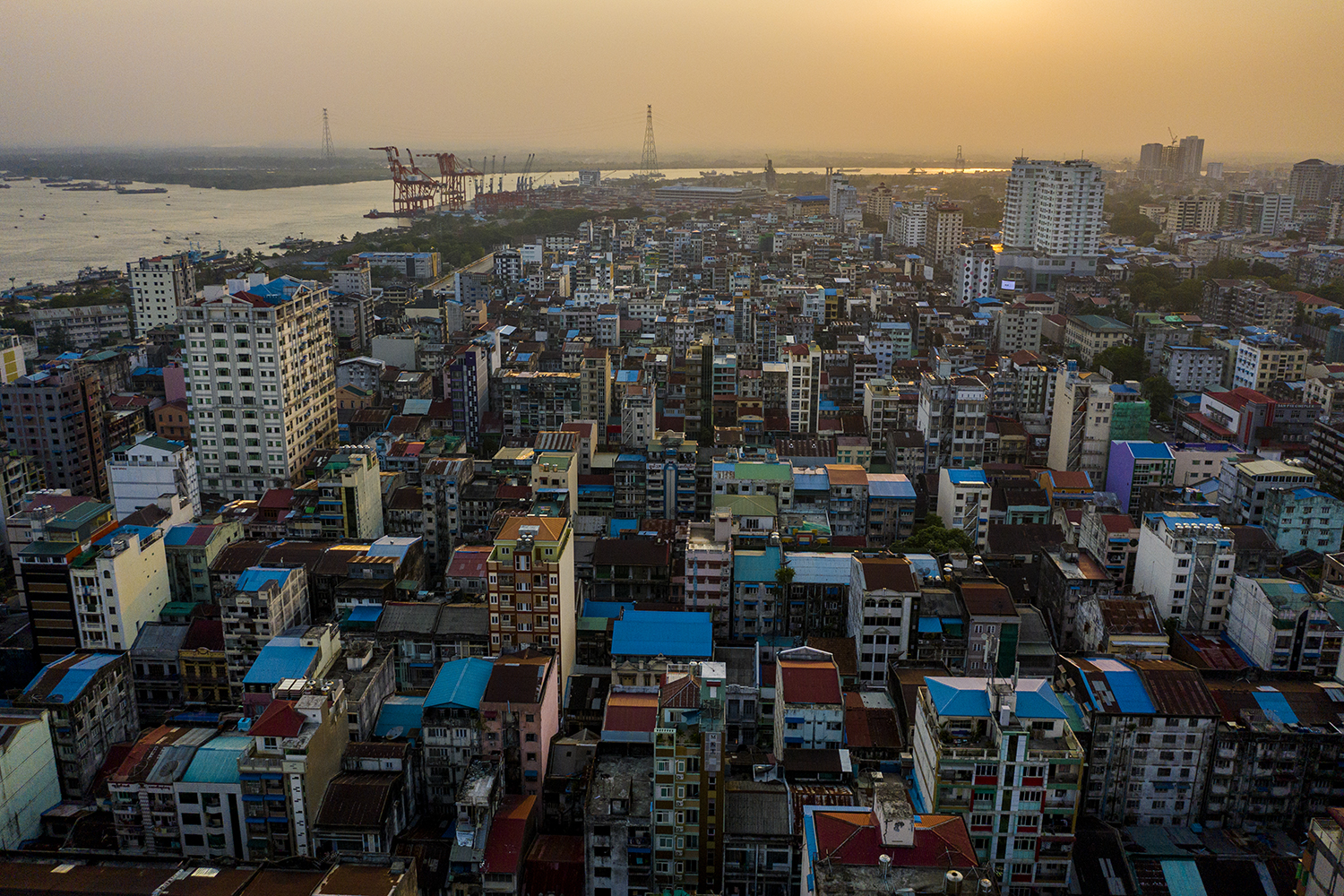Irish entrepreneur John Nagle is the founder of Red Dot, a cash acceptance network established in Myanmar early this year. He was formerly chief executive of Payzone, a payment network based in Dublin. Mr Nagle spoke to Frontier about his plans for the country.
What brought you to Myanmar?
I started my first company when I was very young and we turned it into a very big business across Europe, but I left the business after falling out with my board. Then I went into bankruptcy and came out of it two years ago and came over here for a fresh start.
Denis [O’Brien, founder of Digicel, and an investor in Red Dot] was bidding for a mobile licence at the time and if they won the licence, we were going to help them roll out a top-up network. But he didn’t win the licence and the opportunity was too big and I suggested to Denis that we stay here and build a network and he agreed.
The Red Dot brand is becoming a common sight in big cities. What’s driving its marketing strategy?
If you look at the economy and the structure of payments here, it’s largely cash payments. It takes a long time for a nation to move into electronic payments and while that is happening you have an enormous amount of people who are disenfranchised from online services, payment services, banking services, etc.
Support more independent journalism like this. Sign up to be a Frontier member.
Myanmar has a population of 51 million, many of which do not have a bank account, so how do they trade? We offer a cash acceptance network, which means providing services to those who are trying to get to people who are unbanked and make it more efficient for them to pay their bill, or top up their phone, or buy tickets.
A big part of what we do is to sell mobile phone recharges electronically, instead of scratch cards. That has huge cost benefits to the mobile operators in that they don’t have to print the cards. We provide a service to provide the terminal and the shop keeper benefits because he doesn’t have to provide the different stock of cards that are required.
It’s a model that takes an enormous amount of investment. We’ve invested upwards of US$25 million in the last 12 months here. The plan is to roll it out nationwide. At the moment we are in the major cities and that will continue for 2015. Then next year we will look at second tier cities such as Pyay and Taunggyi.
The biggest challenge we are having is getting retailers to shift from scratch cards to electronic and that takes time and an enormous shift in behavior. We’re introducing a new service and our challenge in the short term is to deploy the devices, and you do that on the back of a high volume of transactions.
What are your plans beyond mobile recharges?
The next series of services will be to extend beyond recharging bill payments and then probably non-utility payments, so concert tickets, bus tickets, airline tickets, paying for classified ads.
Everywhere else in the world, you would pay for a classified ad to be on the front page. But here without a credit or debit card, how do you pay for it? So with our system, say you want to sell a new phone, you put your phone up for sale, but you want to pay for a classified ad. The website then sends them a bill and a barcode and they go to their local store and pay through the Red Dot terminal. Suddenly the consumer is enfranchised in being able to participate in a better advertising capability than he had before.
We’re hoping to launch airline tickets, so the same thing happens there. You go online and buy your ticket, then you go down to the local Red Dot store and pay. We’ve also had banks approach us in how we can help them to extend their reach beyond their branch network to customers they currently cannot reach.
How would that work?
With MPU, the local debit card, there’s not a huge amount of places you can use them, so the banks want us to look at how we could take an MPU payment in our stores and send them to the banks for approval, which gives people a wider reach of being able to use their debit card.
Insurance companies want to offer services, but people cannot afford to spend half a day in traffic to come to their office in downtown Yangon to pay their monthly premium. Likewise, the insurance companies cannot justify sending someone out to collect a small premium fee. So if we can come in the middle and provide a service that allows customers to go to their local store and pay their premium every month, that person’s insured and is enfranchised into these insurance services. So it makes it a bit more equal, as people who could not access these services can now do it through a network.
There are indications that banks are becoming more trusted in Myanmar. Will that be a challenge?
That’s exactly what will happen and as they become more banked, they become more enfranchised. That’s a challenge for us in how do we get the consumer transitioning from unbanked to banked to continue to be part of their transaction process.
That’s why you can’t have a three-year strategy here, you have to have a 15-year strategy. So you partner with banks that are like-minded and who realise that they cannot access certain customers because they are so far away. So suddenly, Red Dot becomes a sort of extension of their bank and becomes an option for people to lodge money into their bank accounts if they’re a long way from the branch.
The opportunity is huge. It takes a long time for our business to transition into a profitable model because you need scale, you need hundreds of transactions going through every week, so the mix of the transactions is very important.
Red Dot has invested heavily in Myanmar at a time when some international companies remain cautious about establishing a presence in the country. Is investing in Myanmar a risk?
It’s a risk in Ireland as much as it is in Myanmar. I think the government here are coming in for a hard time in a lot of ways. A transition like this is never easy, but as long as they continue on that path.
So it’s risky yes, but you would go into any country and there are risks and I think the political risk here is mitigated by the fact that over the past two years, we’ve seen a more open economy and a more open business community and that gives us great encouragement.
Is there always going to be a risk? Yes. Is it manageable? Yes. Then you make an investment choice. You might say things take a bit longer here because the market here is emerging out of a political environment that takes a longer time for certain businesses to open up, but the most important thing is they are opening in an open and transparent way.







